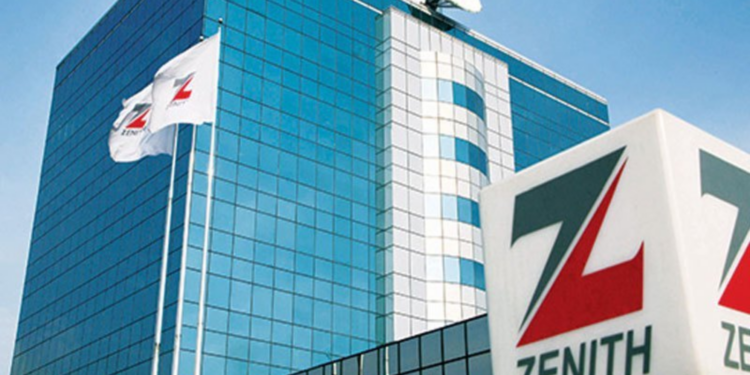Top Stories
BREAKING: Zenith Bank Remains Only Nigerian Financial Institution With A Trillion Market Cap In…
Nigerian banks experienced a challenging April, as all major banking stocks posted losses month-to-date.
This downturn coincided with the first month-to-date decline in the NGX All Share Index of the year, which lost 6% in April this year.
The most impacted were the FUGAZ banks—First Bank, UBA, GTCO, Access Bank, and Zenith—although Zenith Bank was the only one to maintain its position in the SWOOT (Stocks Worth Over One Trillion Naira) index.

Nigerian banks experienced a challenging April, as all major banking stocks posted losses month-to-date.
This downturn coincided with the first month-to-date decline in the NGX All Share Index of the year, which lost 6% in April this year.
The most impacted were the FUGAZ banks—First Bank, UBA, GTCO, Access Bank, and Zenith—although Zenith Bank was the only one to maintain its position in the SWOOT (Stocks Worth Over One Trillion Naira) index.
As of December 2023, Nigeria’s largest banks had a total net asset value of N9.7 trillion but only a combined market capitalization of N4.2 trillion ($ billion), translating to a price-to-book ratio of 0.43, or 43%.
This indicates that investors significantly undervalue banks compared to their book values.
Amid this, challenger banks like Opay and Kuda Bank are valued above $1 billion, despite their smaller operational scales.
FUGAZ value dips
According to the Nairametrics SWOOT Index, as of April, FBN Holdings, UBA, GTCO, and Access Bank each fell below the trillion naira market cap, a level they last exceeded in January when they briefly hit this milestone.
Access Bank: Since January, these banks have seen substantial declines in market capitalization.
- For instance, Access Bank, Nigeria’s largest bank by assets, last reached the N1 trillion mark in late January.
- By the end of April, its market cap had fallen to about N598.9 billion, despite having over N32 trillion in total assets and N2.5 trillion in net assets.
Similarly, UBA, with total assets and net assets of N20.6 trillion and N2 trillion respectively, saw its market cap drop from over N1 trillion in January to N817.3 billion at April’s end.
FBN Holdings, Nigeria’s oldest bank, saw its market cap peak just above N1 trillion in early April but fell to N857.8 billion by April 30th, 2024.
GTCO also experienced a dip; valued above N1 trillion as recently as April 26th, it ended the month with a market capitalization of N962.3 billion.
Zenith Bank, however, remained in the SWOOT, though it risks dropping below if the sell-offs continue into May 2024. It has total and net assets of N20.3 trillion and N2.3 trillion, respectively.
Why Nigerian banks are undervalued
Several factors contribute to these low valuations relative to net assets, despite consistent dividend payouts.
- Some analysts attribute it to the high liquidity of bank stocks, while others point to a general disinterest in the Nigerian stock market, suggesting that intrinsic stock values are seldom reached.
- A more recent factor is the banking recapitalization announcement by the apex bank, which requires banks to raise over N4 trillion in new capital.
- This has likely prompted a sell-off, as lower share prices benefit bank shareholders when the capital increase is through a rights issue.


 Politics21 hours ago
Politics21 hours agoWe Will Bury PDP, Ibori’s Daughter Blows Hot

 Sports21 hours ago
Sports21 hours agoOleksandr Usyk defeats Tyson Fury to tetain heavyweight title

 News21 hours ago
News21 hours agoNigerian Emergency Agency NEMA Puts All Offices On Alert Over Fatal Stampedes

 Top Stories21 hours ago
Top Stories21 hours agoEmefiele: EFCC secures final forfeiture of 1.925 hectares of landed property linked to former CBN Governor

 Sports21 hours ago
Sports21 hours agoCAF Made Me Believe I Won – Achraf Hakimi
- News9 hours ago
NIGERIAN BREWERIES PARTNERS OZA CARNIVAL









